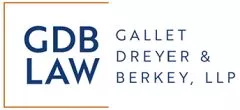Filing a mechanic's lien is easy. As those of my generation used to say, "all you need is a typewriter and a dream." Just fill out a form, sign it, and walk it down to the County Clerk's office and (for a small fee) you can file a lien on someone's property (assuming you file it within certain time constraints).
There are penalties for misusing that right. A fraudulent lien is void. A willfully exaggerated lien is void and subjects the lienor to damages equal to the amount by which the lien was exaggerated.
For example, if a contractor/lienor was owed $75,000 but knowingly and willfully filed a lien for $125,000 against a property owner, the court could strike the lien and award $50,000 together with certain other costs including any premiums incurred to bond off the lien and certain legal fees.
The exaggerated lien claim can also be abused so it too has limits. There are often heated battles over (i) whether the lien amount was exaggerated; (ii) whether it was done "willfully"; and if so (iii) by how much. Courts therefore hold that issues involving an exaggerated lien should await a trial, and should not be ruled upon based on affidavits alone. All the evidence must be put forward. The parties must be subject to cross-examination under oath.
So established was this "wait for trial" principle that if a lienor, fearing he'd be found liable for willfully exaggerating his lien, withdrew his lien on the eve of trial, he could escape any punishment. Without a trial about the lien, there could be no finding of willful exaggeration.
A recent case found a mechanics lien willfully exaggerated without a trial. A fire damaged a building so severely that the New York City Department of Buildings ordered it demolished. The damaged building shared a party wall with a neighbor, so demolition had to be done carefully. The damaged building's owner hired a contractor to do the careful demolition for "the fixed amount of any proceeds actually paid" by the fire damaged building's insurance company. The contractor had to perform work on the party wall to protect the neighbor. The insurance proceeds were paid to the contractor. The contractor believed it was entitled to additional compensation, so it filed a lien for that amount against the hiring owner, and commenced a lien foreclosure action.
The owner answered. Disclosure was completed. The owner then moved on affidavits to strike the lien as being willfully exaggerated arguing that the contractor had no right to file any lien, given its agreement to do all the necessary work for the insurance proceeds. The owner asked the court to strike the lien and award damages without waiting for trial.
The court granted the motion, held the lien to be void and set the case down for an assessment of damages against the lienor. The court stated that while willful exaggeration "is ordinarily determined at the trial of the foreclosure action...a claim [of a willfully exaggerated lien]...is subject to summary disposition where, as here, the evidence that the amount of the lien was willfully exaggerated is conclusive." Since the contract was clear that the "sole and total compensation due" was the insurance proceeds, the contractor should have known better and not filed a lien for more.
The takeaway is that there are some situations, where the evidence is conclusive) in which the determination of a willful exaggeration claim no longer need await a full-fledged trial.
The content of this article is intended to provide a general guide to the subject matter. Specialist advice should be sought about your specific circumstances.


